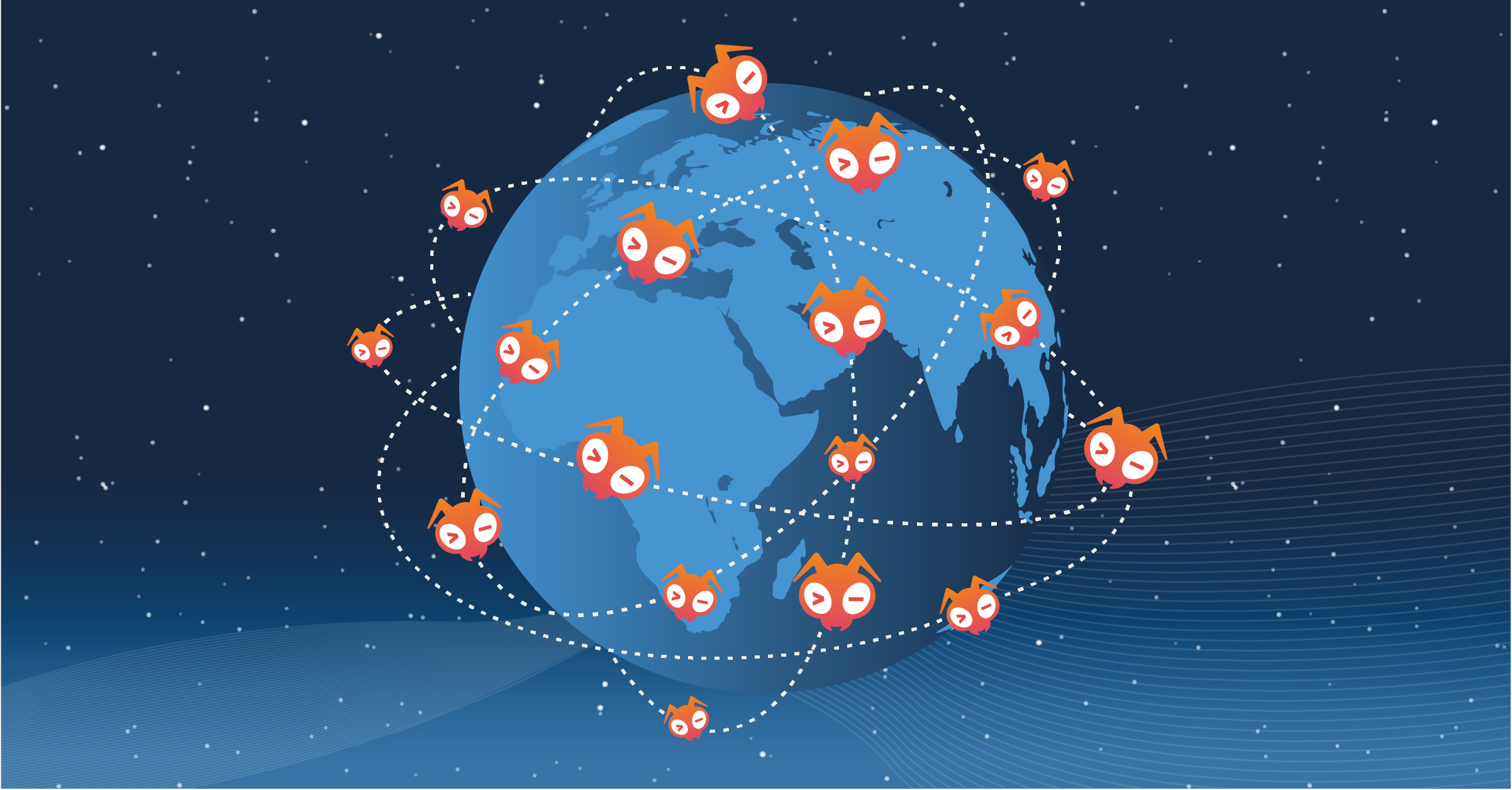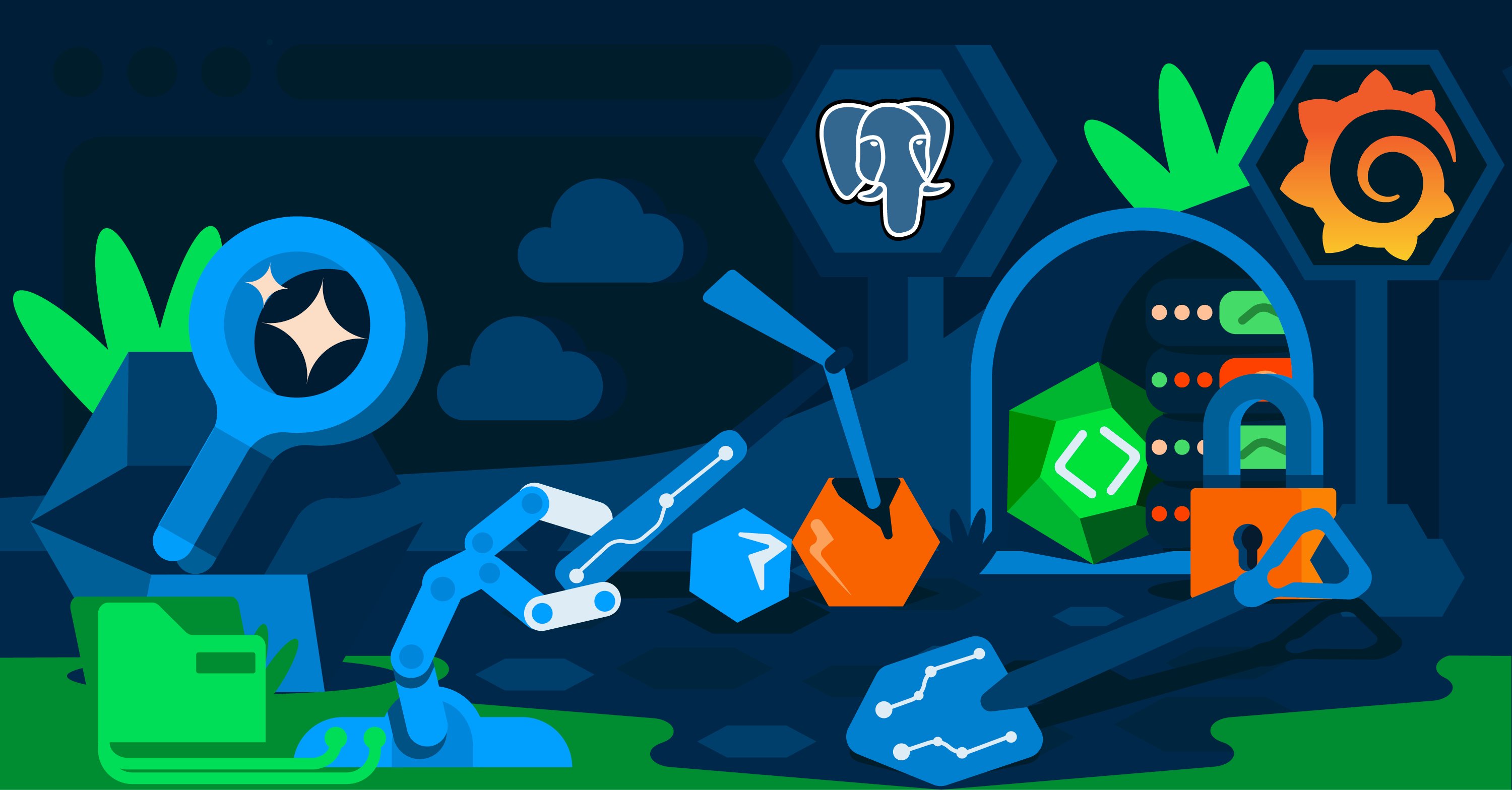Why personal development is very personal at Giant Swarm
by Anna Loew on Feb 4, 2021

Giant Swarm is six-years-old, and we have grown from seven to 60 people. Until now, we have not run structured personal development initiatives, even though they are (besides organizational development) the highlight of PeopleOps work.
The reason being, if we would have promoted a structured approach a few years ago, colleagues would have said something like, “Shut up, we have enough greenfield projects, this is enough development.” And, if someone had a development idea, then he or she spoke up and we found solutions. However, now we have reached a size where this needs deeper thought as people have different motivational structures compared to the original team members.
How did we start?
What we didn’t want was relatively clear.
We are not fans of a deficit-orientated development approach in a business environment. In other words, people should concentrate on things they are good at. Furthermore, we are way too small to create a catalog-based development system that (very often) doesn’t fit anybody 100%.
What did we want to achieve?
We wanted to ensure two things in the kick-off sessions:
- Everyone should be heard.
- Everyone should be supported.
In the end, we wanted to support people in finding out what they want (this is sometimes the most complicated part of development) regardless of whether this is connected to Giant Swarm.
How were we going to get there?
We decided to go with an individual-centered coaching approach first and then iterate after to make a ‘system’ out of it. We (PeopleOps, two individuals both trained in systemic coaching) scheduled initial interviews (60 to 90 minutes) with everyone in the company.
The individual and their specific needs were the primary focus of the interview. If any patterns or trends were to be observed those would only be an additional benefit to the company and not the intended outcome.
We decided that PeopleOps should do these interviews because we wanted to separate concrete training on the job, feedback, and our individual development approach. In preparation, we shared an adapted GROW model with the interviewee that was optional as we did not want it to be too structured because the session was for the person, not the process.

What does personal development mean to you?
Everyone wants to develop, but how, in which particular field, and at what pace is highly individualized.
Asking the above question presented us with a wide range of answers. After the interviews, we went through our notes, discussed individual next steps, and focused on recognizing patterns that we wanted to share. We would design personal development initiatives at a company level based on the following observations.
Challenges
- Swarmers who have been with us less than a year often find our technical onboarding complicated.
- Some of us just wanted to ‘survive’ 2020; this is very understandable and we would never force people to think about development stuff if they are not in the mindset to do so.
Opportunities
- Improving self-discipline and time management was a common goal.
- Many people are motivated by teaching but not by overseeing people.
- Some colleagues show the desire to do more cross-functional work.
- The goal to become a domain-matter expert is present in all areas of the company.
- Improving communication (for several reasons) is a highly ranked personal development goal in a self-organized, remote, and transparent company.
- There was some interest in diving deeper into leadership (more on this in another blog post).
Lessons learned
- Giving Talks is a common ‘I force myself because I know it’s good for me’ pattern.
- Improving English and doing certificates are low-hanging fruits for development.
- Long-term Swarmers need food for thought regarding how to find greenfield projects.
- We have many self-driven learners at Giant Swarm.
Paving the way forward
After analyzing the patterns we observed, we set up a few easy initiatives immediately:
- We decided to book speakers for time management.
- We set up a Working Group for teaching.
- We created a free book allowance.
- We chose an Employee Assistance Program for mental health topics.
People who start thinking about their goals start working towards them.
Along with continuing individual talks, we’ll also ping people after six months if there are no follow-ups already scheduled. Going forward, we’ve also included the ‘coaching kick-off talk’ in our onboarding for new colleagues. In addition, the PeopleOps team is in the process of designing a workshop to facilitate the transparent sharing of learning goals and shift the focus of responsibility to our self-organized cross-functional teams. We believe that transparency will help our colleagues to prioritize their goals and act as a strategy against the ‘I don’t have the time’ pattern.
All in all, we are looking forward to iterating on this coaching-based approach throughout 2021 and beyond. We’ll continue to encourage our colleagues in any field of interest as we truly believe that it benefits the Swarm. For us, development isn’t a narrow view that focuses exclusively on work-based growth. In fact, from our perspective, there is no such thing as isolated work-based growth because authentic growth is holistic. Whether we thrived or only just survived last year, our hope is to create a pattern of transparency and accountability where work feels like a safe space to become the best version of yourself.
You May Also Like
These Related Stories

Getting Hired at Giant Swarm
Working for Giant Swarm is awesome, I personally think it’s an opportunity of a lifetime. (And nobody is paying me to say that. :p In fact, I’ve been …

Giant Swarm’s giant network
‘Reflection meets celebration’ is usually a good way to distill the multiple and often contradictory feelings inspired by a birthday. In other words, …

Making Grafana remember: our journey to persistence with Grafana and PostgreSQL
To support our customers wanting a simpler, UI-driven way to manage Grafana dashboards ("ClickOps"), we moved from a stateless, GitOps-managed setup t …